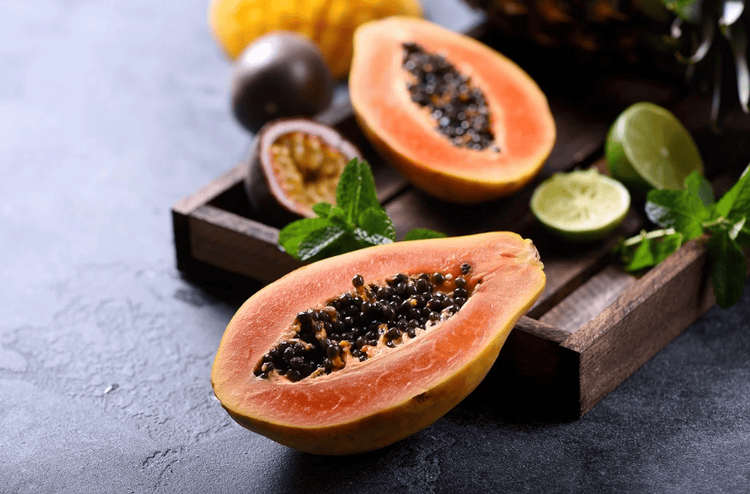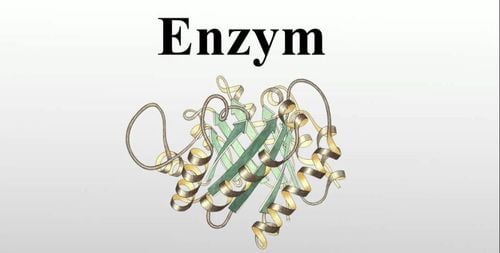This is an automatically translated article.
The article was consulted with Specialist Doctor I Vo Thi Thuy Trang - Department of Medical Examination & Internal Medicine - Vinmec Da Nang International General Hospital.Digestive enzymes are an indispensable source of raw materials to increase the efficiency of food digestion. It is found in many vegetables, fruits and functional foods.
1. What is a digestive enzyme?
Digestive enzymes play an important role in breaking down food by speeding up chemical reactions that turn nutrients into substances that can be absorbed by the digestive tract.Digestive enzymes exist in saliva, pancreas, gallbladder, liver and intestines. Different types of enzymes have different functions to break down nutrients:
Enzyme Amylase breaks down carbs and Starch Protease - protein digesting enzyme Lipase breaks down fats.
2. Natural source of digestive enzymes
Natural sources of digestive enzymes are:Fruits and vegetables have natural digestive enzymes that help improve digestive function Honey, especially the whole variety, has amylase and protease. Mangoes and bananas have amylase, which helps the fruit ripen faster. Papaya contains papain, a type of protease. Avocados have the digestive enzyme lipase. Pickles absorb digestive enzymes during fermentation. If the body does not make enough digestive enzymes, the digestive function cannot take place well, thereby causing symptoms such as abdominal pain, diarrhea, bloating.

Đu đủ có chứa papain là một trong những nguồn tự nhiên của các enzym tiêu hóa
3. Some digestive disorders prevent the body from making enough enzymes
Some digestive disorders prevent the body from making enough enzymes, such as: Lactose intolerance, a condition in which the small intestine does not make enough lactase enzyme - the enzyme that breaks down the milk sugar lactose. With a lactase deficiency, the lactose in dairy products goes straight to the large intestine instead of being absorbed into the body. It then combines with bacteria that cause unpleasant stomach symptoms.There are three types of lactose intolerance, they are:
Primary lactose intolerance: A condition in which a mutation in the LCT gene causes a congenital lactase deficiency. Lactase levels drop suddenly at an early age, making it harder for the body to digest milk. This is a common form of lactose intolerance and is common in people of African, Asian, or Hispanic descent. Secondary lactose intolerance: The small intestine makes less lactase after illness, injury, or surgery, or with celiac disease and Crohn's disease. Congenital lactose intolerance: The body does not make lactase from birth. This is a rare phenomenon, unless the child inherits the gene from both parents with lactose intolerance. Exocrine Pancreatic Insufficiency (EPI): May occur with medical conditions that damage the pancreas such as: Pancreatitis, Pancreatic Cancer, and Cystic Fibrosis To treat EPI, your doctor may recommend lifestyle changes such as:
Quit smoking Avoid alcohol Low fat diet Take vitamins and minerals Take prescription medications to improve symptoms.
4. Enzyme Supplements
Enzyme supplements are effective in soothing the symptoms of digestive disorders. Dosage is determined based on age, weight and digestive system condition.
Bạn nên hỏi ý kiến bác sĩ trước khi dùng chất bổ sung enzyme
Lactase supplements are not recommended for children under 4 years of age. In addition, pregnant and lactating women need to consult a doctor about the pros and cons of the drug and weigh the benefits before buying it.
Currently, most enzyme products are of animal origin. The researchers predict that in the future, products of plant and microbial origin may be more common.
Please dial HOTLINE for more information or register for an appointment HERE. Download MyVinmec app to make appointments faster and to manage your bookings easily.
Reference source: webmd.com












